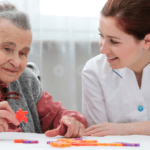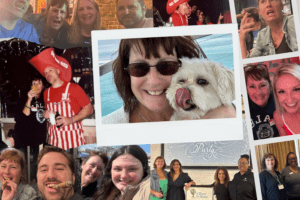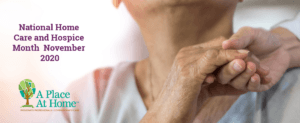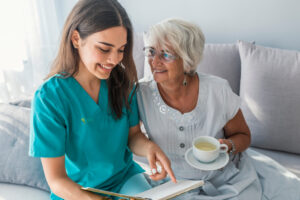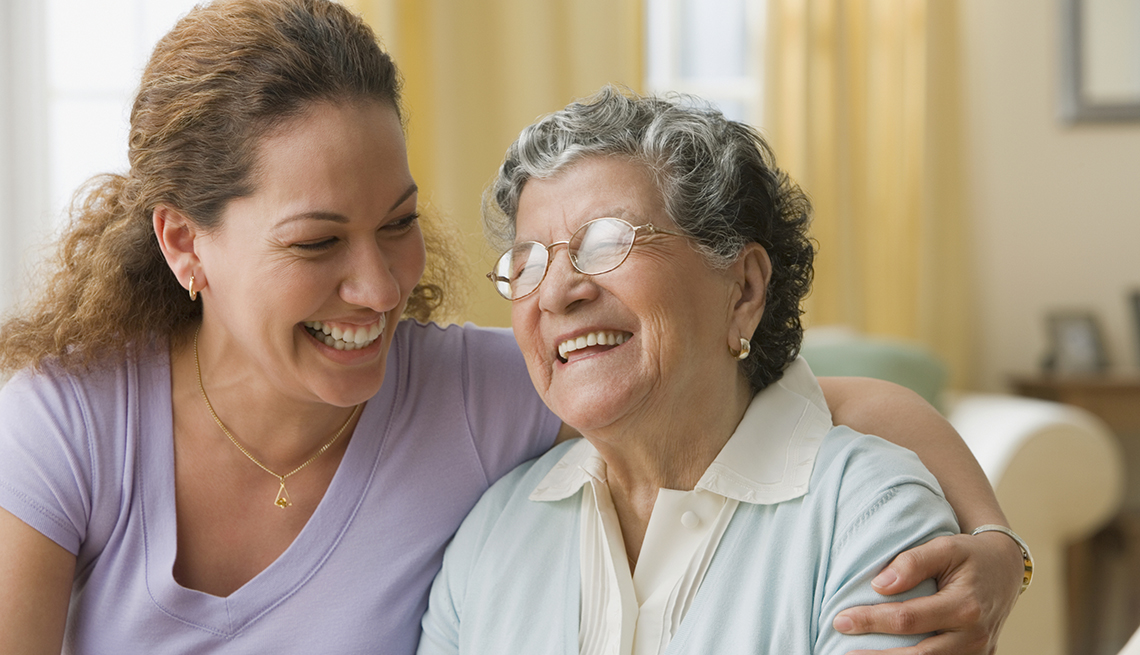
Vision is one of the most vital senses, and as your loved one ages, you may notice changes in their eyesight. While some changes are normal to aging, others can indicate more serious issues, such as age-related macular degeneration (AMD). This makes eye care for seniors an essential aspect of their overall health.
Learn more about eye care for seniors, including regular check-ups and diet improvements. These steps can help prevent age-related eye conditions and boost habits that promote optimal eye health.
Routine Eye Exams
The American Academy of Ophthalmology (AAO) recommends that individuals 65 and older have a comprehensive eye exam every one to two years, even if they have no existing vision problems. Regular check-ups are crucial for early detection of conditions that become more prevalent with age, such as cataracts.
Neglecting regular eye exams can have severe consequences. Conditions like glaucoma and age-related macular degeneration can progress silently, leading to irreversible vision loss if not detected and treated early. Annual exams can also reveal other health issues like high blood pressure and diabetes.
Eye Conditions Prevalent in Seniors
- Macular Degeneration: This condition affects the central vision and can make daily activities like reading and driving difficult. It is the leading cause of vision loss in seniors, according to the National Eye Institute. Symptoms include central vision blurriness, trouble seeing in low lighting, straight lines that look wavy, or a blurry area or blank spots near the center that get bigger over time.
- Cataracts: A cataract is the clouding of the eye lens, leading to blurry vision. The Mayo Clinic says a cataract usually develops slowly. You might notice your loved one having difficulty seeing at night, being sensitive to light and glares, or needing a brighter light for reading. Other symptoms include colors appearing faded or yellow, having double vision in one eye, seeing halos around lights, or having frequent lens prescription changes. Cataract prevention includes lifestyle change. Severe cases require surgery.
- Glaucoma: The Cleveland Clinic says glaucoma is the second leading cause of blindness. It results from increased pressure in the eye, ultimately leading to potential vision loss. Some types of glaucoma don’t show symptoms, making it challenging to diagnose. However, some symptoms include eye pain, blurred or tunneled vision, blind spots, red eyes, rainbow-colored halos around lights, headaches, or nausea. Once damage begins, it’s irreversible, according to the Cleveland Clinic, which is why annual eye exams are crucial for your senior.
- Diabetic Retinopathy: A condition that can occur in people with diabetes. AAO says it happens when high blood sugar levels damage blood vessels in the retina. It can eventually cause blindness. Unlike other eye conditions, diabetic retinopathy typically affects both eyes. The symptoms are similar to cataracts.
Maintaining Good Eye Health
Besides annual eye exams, here are some ways to ensure your loved one maintains good eye health:
- UV Protection: Encourage your loved one to wear sunglasses that block 100% of UVA and UVB rays when outdoors.
- Quit Smoking: Smoking increases the risk of cataracts and AMD. If your loved one smokes, help them find resources to quit.
- Regular Exercise: Physical activity improves blood circulation, which is good for the eyes.
- Adequate Sleep: Lack of sleep can lead to eye strain and vision problems.
- Limit Screen Time: Prolonged screen exposure can lead to eye strain. Encourage breaks and the 20-20-20 rule: look at something 20 feet away for 20 seconds every 20 minutes.
Dietary Recommendations
While you may not realize it, diet plays a significant role in eye health. Foods rich in antioxidants, like leafy greens and berries, can help with cataract prevention. Omega-3 fatty acids found in fish can also slow down the progression of AMD. Encourage a diet rich in fruits, vegetables, and lean proteins for overall eye health. AAO also recommends orange-colored veggies and fruits with vitamin A, such as carrots or cantaloupe. Vitamin A is good for the retina and keeping the eyes moist. While Vitamin C helps repair the eye from damage caused by fried foods, tobacco smoke, and UV rays.
Call A Place At Home for Help
Eye care for seniors is not just the responsibility of the individual, but also the family and caregivers. If you’re concerned about your aging loved one’s vision, don’t wait for problems to escalate. If you need help getting your loved one to the doctor, let A Place At Home help you. We offer a variety of senior care services, including medical appointment assistance. Remember, good vision contributes to a better quality of life. Take the first step in ensuring a brighter, clearer future for your loved one today.
Find an A Place At Home location near you to set up a customizable care plan.

